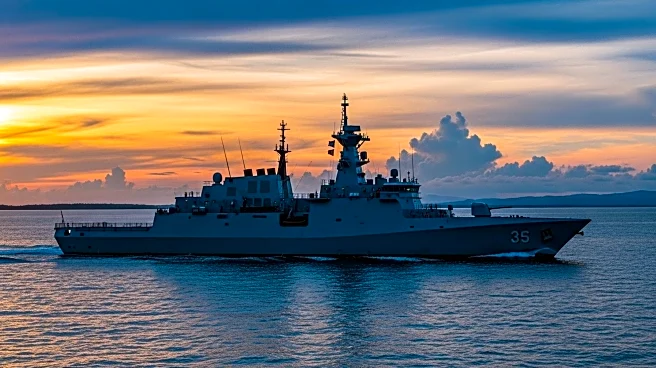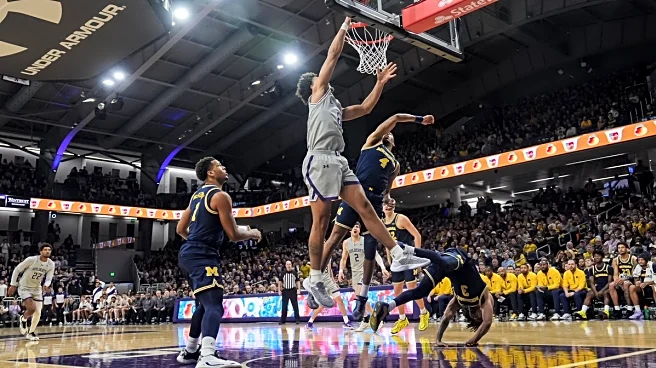What is the story about?
What's Happening?
Venezuela's foreign minister, Yván Gil, has accused the United States of illegally boarding a Venezuelan tuna boat in its waters. The incident involved personnel from a U.S. Navy destroyer who reportedly boarded the vessel with nine fishermen on board, remaining for eight hours and disrupting their activities. This development comes amid heightened tensions between the two nations, following President Trump's deployment of warships in the Caribbean to combat drug cartels. Venezuela claims the boarding was a provocation aimed at justifying military escalation, while the U.S. has accused Venezuelan President Nicolás Maduro of drug trafficking. The Venezuelan government has called for citizens to enlist in militias to support security forces against potential U.S. incursions.
Why It's Important?
The incident underscores the strained relations between the U.S. and Venezuela, with potential implications for regional stability. The U.S. has intensified its stance against Maduro, accusing him of drug trafficking, which could lead to further diplomatic and military confrontations. The boarding of the tuna boat may exacerbate tensions, potentially affecting trade and security in the Caribbean. Venezuela's call for militia enlistment highlights the seriousness of the situation, as both nations prepare for possible escalations. The broader impact includes potential disruptions in regional cooperation and increased militarization, affecting neighboring countries and international relations.
What's Next?
Venezuela is likely to continue its diplomatic efforts to defend its sovereignty, possibly seeking support from allies in the region. The U.S. may face international scrutiny over its actions, with calls for evidence to support its claims against Venezuela. The situation could lead to increased military presence in the Caribbean, affecting regional security dynamics. Both countries may engage in further diplomatic exchanges, with potential involvement from international organizations to mediate tensions. The incident may also influence U.S. foreign policy decisions regarding Latin America, impacting future relations and cooperation.

















